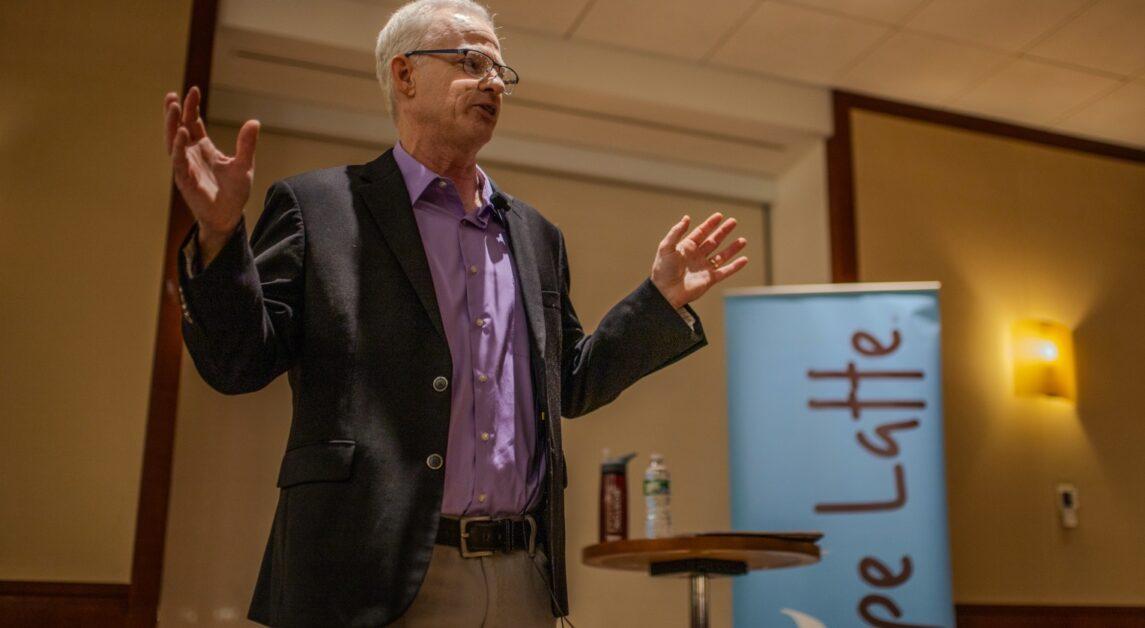Sick of analyzing baseball pitching statistics for days on end, Scott Olivieri made the decision to leave his “dream job” developing computer video systems with the Boston Red Sox for something new.
“I had the first feeling of what Ignatius calls desolation,” said Olivieri, managing director of web services for Boston College’s Office of University Communications. “But I silenced it. You know the dream job can put funny things in your head.”
Olivieri spoke at Agape Latte, an event hosted by The Church in the 21st Century Center, on Tuesday. In 1991, Olivieri and his father developed a computer video system for the Red Sox that allowed players and coaches to predict pitchers’ tendencies.
Olivieri worked and traveled with the Red Sox for four years before resigning from his position. In 2003, he wrote a book about his time with the team titled The Batter’s Edge: A Year With the Boston Red Sox.
Following the Ignatian discernment process, Olivieri said he realized that time spent with his wife and his daughter was more valuable to him than the fancy hotels and recognition that came with his Red Sox job.
After resigning, Olivieri’s new job gave him a 90 minute commute each way into Boston, he said. It was also a less “exciting” job, he said, and left him feeling discontent.
“You feel a sense of emptiness because you didn’t get selected or maybe you didn’t even try it,” Olivieri said. “Well, for me, it wasn’t subtle, because in 2004, the Red Sox won the World Series.”
Olivieri said it was difficult to measure up his new job to the national success that could have come with winning the World Series.
“Life definitely has peaks and valleys and this was definitely a valley that I was in for a while,” he said.
In the long run, Olivieri said he lost out on millions of dollars by leaving his job with the Red Sox. His work-life integration, however, became more fulfilling. Frequent moments of joy were more rewarding than one major pitching discovery, he said.
“You know, continue to grow your career and try to customize your job,” Olivieri said. “If you can’t, have the courage to move on. Try not to carry around fixable regrets. Make a mess.”
As he continued to seek this balance, Olivieri said BC’s focus on cura personalis resonated with him. Following a conversation with James Weiss, director of the Capstone senior seminar program, Olivieri submitted a course description for The Balancing Act, a Capstone he now teaches.
“I’m a complex person with multiple identities,” Olivieri said. “I found I had more energy and love and care to give to others.”
Discerning how physical wellness, family, work, and the little things fit into his life enabled Olivieri to better balance the things that were important to him, he said.
“You know, maybe there’s no such thing as a dream job, only the job that’s best for you at this stage in your life,” Olivieri said.
Olivieri advised students to not dwell on past decisions and to embrace the present instead.
“Stop asking yourself, ‘Did I make the right decision?’” Olivieri said. “Instead, make that decision right. Small shift in the order of words, but a seismic shift in meaning. One is in the past and rumination, the other is firmly rooted in the present and taking action.”













